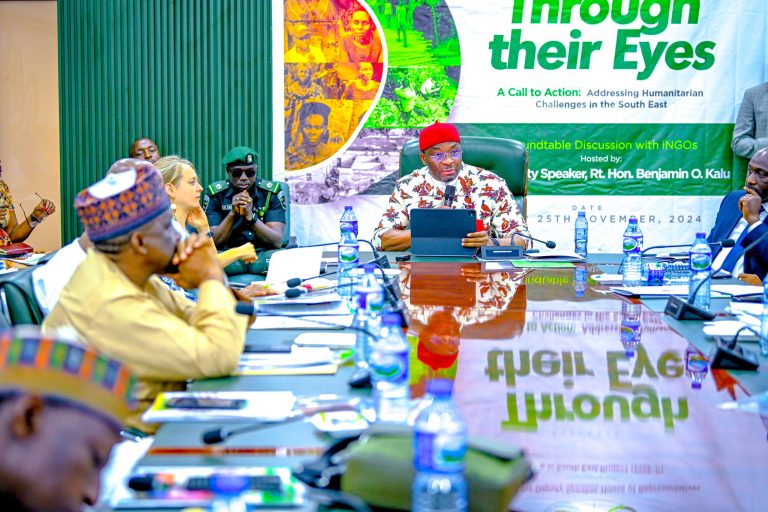From Ndubuisi Orji, Abuja
The Deputy Speaker of the House of Representatives, Benjamin Kalu, has said the South East geo-political zone is facing a humanitarian crisis as a result of ecological challenges in different parts of the zone.
Kalu disclosed this, while speaking at a roundtable with international nongovernmental organisations (INGOs) in a programme titled, ‘Through their eyes: A call to action, addressing humanitarian challenges in the South East’ in Abuja, yesterday.
The programme, which was organised by the Office of the Deputy Speaker in conjunction with Peace In South East Project (PISE-P) was intended to explore avenues to deliver sustainable solutions to ecological problems in the area.
The deputy speaker noted that over 268,000 internally displaced persons (IDPs) are in 158 camps in different parts of the South East, as a result of ecological problems.
Kalu, who decried the displacement of people across the five states in the South East by natural disasters like gully erosion and violence, stressed the need for a collaborative approach to address the plights of the people.
“South East geopolitical zone of Nigeria is grappling with a severe humanitarian crisis, characterised by displacement, violence, and ecological challenges.
“Report presented today underscores the grim realities. Over 268,000 internally displaced persons (IDPs) are spread across the 158 camps and affected communities. The states of Enugu, Imo, Abia, Anambra, and Ebonyi bear the brunt of this crisis, with precarious living conditions, leaving many without access to clean water, adequate shelter, healthcare, and education.
“Shelter, in particular, remains a pressing concern. Families live in makeshift camps or overcrowded host communities, exposed to health risks, insecurity, and a loss of dignity.
“Natural disasters like gully erosion have destroyed homes, leaving little to return to. This crisis demands not only immediate intervention but also sustainable strategies to restore stability and hope.”
The deputy speaker added that, “the South East crisis is not just a regional issue, it is a national challenge that requires a collective response. We, in government, pledge to facilitate an enabling environment for your work. This includes removing systemic barriers, enhancing security in affected regions, and providing a robust policy framework to guide interventions.
“Together, we can bridge the gap between immediate humanitarian relief and sustainable development. I urge us all to remain steadfast in our shared mission. Let us align our resources, strategies, and resolve to build a Nigeria where no one is left behind, and every individual has the opportunity to thrive. Your insights and recommendations from today’s discussions will guide the formulation of evidence-based interventions.”
